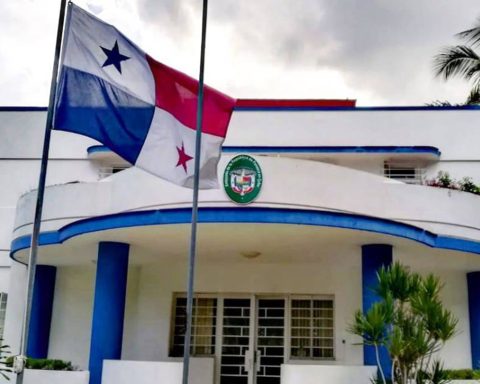As the regulatory process of the law to Regulate Financial Technology Institutions, also known as Fintech Law, Information is beginning to emerge regarding the alerts that the platforms attached to this regulation have detected and that could be indications of money laundering or financing of terrorism.
According to information from the Financial Intelligence Unit (UIF) of the Ministry of Finance, derived from the general provisions of the Fintech Law, published in September 2018, the platforms regulated under this regulation began to report to this instance information that could mean signs of money laundering, such as The rest of the entities of the financial system do so.
According to the data presented by the FIU, between 2021 and last May, the platforms regulated under the Fintech Law 308 reports of unusual operations were presented to this unit, which are those that include activities, behaviors or behaviors that do not match the background or activities known or declared by the respective clients.
“The fintech Authorized when formally operating in the financial system, they are required to comply with various obligations in terms of prevention of money laundering and financing of terrorism. This is because they can serve as vehicles to launder money even without their knowledge,” explained Genaro Díaz Sandoval, associate of the InStrag, Public Affairs & Law firm.
So far, there are 34 authorized platforms under the Fintech Law, 20 are electronic payment fund institutions and 14 are collective funding institutions, which are the two main figures regulated by said regulations.
“Fintechs are financial entities that receive and manage money from the general public, therefore they can be subject to money laundering… It is vital that they know in detail the transactional profile of their clients, in order to identify transactional changes, irregularities and the application of possible typologies within their entity,” said Yoliztli Gutiérrez, founding partner of the YG Consultores firm.
In addition to the reports of unusual operations, the FIU received in that period three reports of relevant operations from this sector, that is, those that present an amount equal to or greater than the equivalent in national currency of 7,500 US dollars, that is, the 156,430 pesos, and therefore they have to be reported.
Once the FIU receives the information, said instance carries out a process of disseminating it and subsequently collects more data, in order to prepare and present reports on the findings and, if it is considered pertinent, it presents the complaints before the competent authorities, incorporates subjects to the List of Blocked Persons and can also present visits.
The challenges
For lawyers specializing in financial technology, the challenge for fintech companies authorized to comply with their obligations in terms of preventing money laundering and financing of terrorism lies in being able to implement their processes in this regard, but in non-face-to-face operations, which difference from the rest of the entities of the financial system.
“The challenge in prevention of Money Launderingbeing digital platforms, is great from doing the process of onboarding and validation of documentation of its clients… The fact that the fintech receive money from the general public opens the door that may be potential objects for the introduction of illicit money,” said the partner of the firm YG Consultores.
For its part, the partner of the InStrag, Public Affairs & Law firm highlighted that having remote operations represents a new degree of risk for fintech companies to validate the identity of their clients.
“The fintech operation is carried out remotely, this entails a new degree of risk when validating the identity of the clients, preventing identity theft and, therefore, the fraudDiaz Sandoval pointed out.
According to both specialists, the main compliances that fintech companies must have in terms of money laundering prevention are:
- Customer Identification Policies.
- Report operations information to the corresponding authority.
- Implementation of an anti-money laundering compliance manual.
- Inclusion of the lists of people blocked in their processes.
- Have a certified compliance officer.
- Implementation and operation of automated systems.
pending authority
When conducting a survey among different actors in the industry, many participants denounced that to date the FIU has not provided them with the black lists international, in order to detect any operation related to any subject indicated by an authority as prone to money laundering or terrorist financing.
For the ecosystem, this is an important pending issue since the authority must provide said list in order to identify and report any operation that could be related to the subjects that appear in said records, mainly from the United States authorities.

















